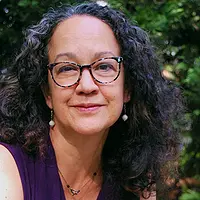
Much is said in development circles about the need to amplify marginalized voices and consult indigenous wisdom, especially in response to climate change. Far less is articulated about exactly how to do that. As a result, the concepts of co-design and co-leadership tend to be rhetorical rather than applied, depriving us of rich insights and valuable experiences that can help craft effective climate adaptation and mitigation strategies and solutions.
Scientific research is crucial and should play a key role in helping us chart our way through the climate crisis. However, to be truly innovative and inclusive, we need to find ways of valuing lived experience, expanding local voices, and thinking deeply about what locally led development (LLD) work requires. RTI’s own journey and experiences to LLD reinforce our commitment to prioritizing local partnerships and mutual learning. Climate change demands that we respond to this crisis immediately, effectively, and sustainably.
At the recent Adaptation Futures 2023 conference, I thought a lot about these issues and left with four approaches that need to be integrated into climate projects.
1. Humanize Climate Change
Adaptation Futures, held in Montreal on the indigenous lands of the Kanien’kenha:ka Nation, successfully modeled putting people at the center of climate change discussions, beginning with a stirring call to action from the Nobel Peace Prize nominee and environmental activist, Sheila Watt-Cloutier. The results were compelling. Attendees from Canada First Nations and those from local communities throughout the global south led numerous panels alongside academics and scientists presenting their research. People living on the front lines of climate change, often with centuries of experience in adaptation, poignantly shared their challenges, hopes, dreams, and fears, at times bringing their audience to tears. They presented the human side of an issue that is frequently considered through a scientific, economic, or technological lens. These sessions stood out among the 180-plus panels and became a master class in how to showcase the experiences of communities that are already dealing with the impacts of climate change.
In addition to traditional knowledge and a deep familiarity with local conditions and issues, the community representatives shared the results of their own citizen science and on-the-ground research, offering contributions that were both anecdotal and data-based. Many sessions were structured as workshops where presenters talked with small groups and all participants interacted, which made for especially effective engagement. Canada First Nation crafters and artists also demonstrated their art on the sidelines of the conference, expanding the opportunity to gain a truer sense of place and cultural awareness. By adopting a similar format, future conferences could contribute to trust-building and mutual learning and understanding, which are foundational to locally led development.
2. Pursue Collective Science
Science itself can inadvertently contribute to widening the gap between “north and south” or between the so-called "experts” and local communities. We need to recognize the unequal power dynamic that is often created in the name of international development and take steps to instead use data to bridge and build mutual understanding and learning. RTI has experienced the benefits of developing research partnerships in Guatemala, Tanzania, the Philippines, and elsewhere, where our local counterparts were involved in all phases of the research process (design, methods, field research, assessment, etc.) In one example, under USAID’s Biodiversity for Resilience (B4R) Activity in Uganda, we facilitated local community engagement with modeling data on streamflow, resulting in identified agricultural opportunities to build climate resilience driven by local priorities and practices.
Researchers have an important role to play in this process by communicating key findings and facilitating dialogues to integrate local knowledge and observations into research-based recommendations. It is also essential that we recognize that communities may be conducting their own research that can help inform strategies. To foster true collaboration, we need to re-evaluate our perspective of our own and other people’s knowledge and understand that while perspectives may differ, they are all valuable and should be respected. Systemic progress is achieved by harnessing shared knowledge and seeking shared solutions.
3. Foster Flexibility
In pursuing locally led international development, allowing sufficient time to build trust and enough flexibility to support responsiveness are widespread challenges. These are equally present when addressing climate change. It takes time to fully grasp the complexity of what needs to be done alongside community partners. Several panels at Adaptation Futures included calls from local organizations for more flexibility from donors to allow the pivots and focus that can only come after a partnership is formed and strengthened.
As USAID implementers, we can lean hard into CLA (collaborating, learning, and adapting) and create meaningful project check points that recognize and capture opportunities for innovation and impact and move past the least promising interventions. USAID and other funders can solicit that flexibility, recognizing that developing local partnerships and leadership requires enabling space for solutions to integrate new ideas and input from these groups. This approach could help communities feel heard and included, thus strengthening trust, and would likely bring about better results for communities and funders.
4. Emphasize Cross-Sector Adaptation Strategies
Climate change is particularly devastating for low-income and marginalized communities because they already face significant challenges, such as food insecurity, unsafe water, poverty, and lack of sanitation, housing, health care, and other basic needs. The climate crisis has become a human tragedy, in part because these are the communities that are often the first to be impacted by extreme weather events and other effects linked to global warming. Adopting integrated strategies and solutions that address multiple sectors can help urgently address these equity and social justice issues alongside climate change.
By starting from a point of inequity, and grounding assistance in community needs through local partnerships that allow all participants to contribute their expertise, we can uncover opportunities to realize multiple benefits beyond the boundaries of a specific sector. Nature-based solutions (NBS), which take an ecosystem approach, are one way that communities and scientific experts can come together. In a panel on measuring NBS, Dr. Vidya Anderson from the University of Toronto shared her research on green infrastructure in Ontario. The installation of a roof-top community garden in a disadvantaged area was part of an initiative to expand urban greenspace. Dr. Anderson found that the (unexpected) benefits of the garden included addressing a pervasive lack of fresh food for the area’s residents, who maintained the garden in exchange for produce. Her study also revealed numerous mental health benefits, skill-building for the vulnerable population, and increased social connectivity – all significant aspects of network strengthening and urban resilience. We need more evaluations that explore co-benefits of climate adaptation interventions to make the case for NBS, which can be challenging for decision makers to compare and contrast with mainstream infrastructure solutions.
Looking Ahead to COP: Locally Led Climate Solutions
In recognition of the need to put local people first in climate work, RTI will be presenting multiple panels at the upcoming COP28 focused on evidence-based, locally led climate solutions. An official side event will present a country-led programmatic approach to climate resilience where priority is given to projects that integrate adaptation, development, and biodiversity goals. RTI will also host panels on NBS, the food-energy-water nexus, and more. We hope to push forward the dialogue on effective solutions, driven by scientific and local/lived data to address urgent multi-faceted climate and development challenges.
